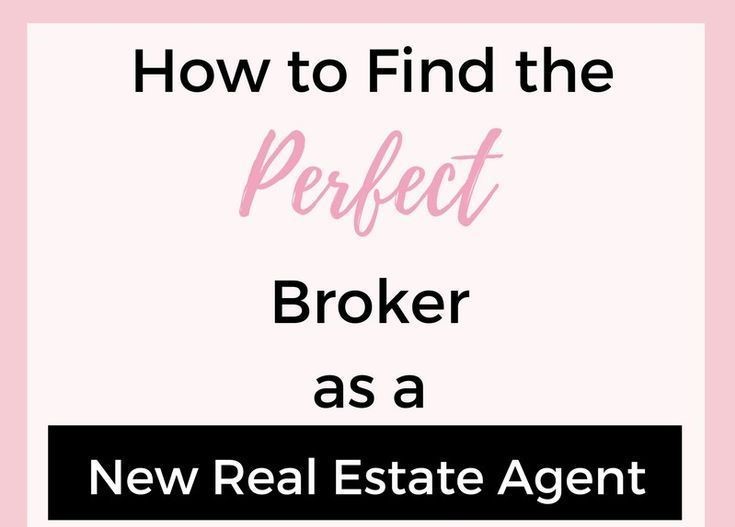
One of the most common concerns a future Real Estate Agent can have is “which Brokerage is right for me?” While in school, there will be many Brokers come in class to pitch what they have to offer the next generation of newly licensed Realtors. So, what should one look for in a Brokerage?
In today’s world, many Real Estate Franchises, as well as independent Brokers, have recorded webinars or online training. I think this is good and every Brokerage should have that, however, nothing replaces face to face, live training. In a classroom, it’s easier for people to ask questions and learn from the interactions that happen with several people around. The Broker can talk about the specifics of today’s market, whereas in a recorded training video, things are much too generic; and in a webinar is too easy to just sit back and watch.
Another thing to look for are fees. Many Brokerages charge fees for just about everything, such as training. Most don’t charge for that, or they shouldn’t, because that’s an investment the Brokers should be making into brand new agents. Also, most Brokerages will say that when you leave them within a certain period of time, you owe them for that training and that can be quite hefty. At our Brokerage, if you leave us for another Broker within 6 months, you would owe us for the training. We haven’t had to enforce that in a long time.
What are some of the other fees associated with joining a Brokerage? There are fees for Sales Tools; you need to know if the Brokerage you’re interested in charges fees for lock boxes. Lockboxes can be very pricey, especially if you get several listings at once, it could end up around $600 to $700 out of your pocket and if you’re just starting out that can be tough. Some Brokerages will also charge for signs or make you purchase your own. We don’t charge for either, however, if an Agent wants to personalize a sign, then that would be at their expense.
There can also be desk fees; many Brokerages want to charge you just to use a desk, others can charge a monthly fee whether you’re producing or not. They may also want to charge you to make copies, which can quickly become expensive when needing to make copies of each transaction for Clients. This should be absorbed by the Broker, but in today’s world it’s becoming less and less often, since most of what we do is done online and we’re moving to a paperless society. Believe it or not, I’ve even seen coffee fees, and you know all those small fees can add up. You think it’s only $20 here and there, or $40 a month or $250 a month and before you know it, you’re paying $1000 a month even if you are not producing anything and that’s a tough way to start out.
Some Brokers offer webpages, leads, a CRM, a Design Center for flyers and an IDX feed, while others charge for these. I’ve spoken to people that come out of school not knowing what a CRM or an IDX feed is; by the way a CRM is a Customer Relationship Manager and an IDX feed is an Internet Data Exchange feed. These are important tools used by Agents to manage with listings and Clients information. And when the subject of blogging and maintaining a webpage it can seem daunting. Does the franchise or independent Broker offer help in navigating a way through all this? I think our franchise does a great job and helping new Agents get started with all the tools they’ll be using.
Speaking of leads; many franchises, when an Agent gets a lead from Corporate, they are charged a referral fee. I’ve heard of some of them being as high as a 50% referral fee, on top of their cut of the commission. You should ask any prospective Broker if your clients and database remain your clients and database. There are some franchises that market to your database, for example, if I sold a house to Mr. and Mrs. Smith, the franchise would require me to put that information into their system and then they will start sending them postcards once a quarter and if they ever come back and say “yes, I’m interested in selling my home”, it might go back to you or it might go to another agent. Either way it’s going to be a 50% referral fee on top of the commission split. So, ask yourself who are they really working for. Is the Broker really working for the Agent, is their attitude to do whatever they can for the Agent?
You should also look for Brokers that are easy to talk to, approachable. Everyone ways there’s no such thing as a stupid question, and many Agents just starting out feel like all their questions are stupid and they’re embarrassed to ask them. They should feel that way, most Brokers would love to answer your questions and make sure you know the right answer vs. guessing and getting everybody in trouble. Or good Brokers would, anyway. But again, do you feel comfortable going into that Broker and saying you have a question; if the Broker makes you feel dumb, you are less likely to ask a second question.
Another thing to think about is management style; different management styles will affect how you do your job. If the Broker is not in the office, is there anyone else you can go to? How many people can you contact by phone and ask a question? If your getting ready to choose a Broker, call his cell phone, see if he ever answers his phone. How long does it take for him to return the call? These things are often overlooked when choosing a Brokerage. Communication is extremely important in this business.
The atmosphere of the office will tell you a lot, too. If you walk in and the office is tense, it may not be a place you want to work. Conversely, if the atmosphere is relaxed and casual, it may be a great place you want to work. More and more people are working from home, so you need to find out, if that’s your personality, if you can work from home. May Agents cannot, I could not work from home personally. I’d always be thinking about things I could be doing, such as mowing the lawn. If you are the type of person that can’t work from home, then find out if the Brokerage has room for you, and again, if they’re going to charge you for it.
Something else to think about, does the Broker know the names of all the people that work for them. In larger Brokerages, it’s almost impossible for the Broker to know the names of all the people working for him. And again, that would go back to the comfortability of whether you can ask questions or not.
You should also find out if the Broker will allow you to shadow them or another experienced Agent or have a mentorship arrangement in the office. That is important so that you get an idea of the activities that Agents do regularly, and that there’s no secret science to it, so you’re comfortable doing it on your own.
Always do your own due diligence while finding the right Brokerage to hang your license under, ask questions and talk to a few different Brokers. Find out what their fees are and what they provide at no charge, your expenses are already going to be high enough when starting out. Never be afraid to ask questions and I hope this article has given you food for thought in your pursuit of an ideal Brokerage.



